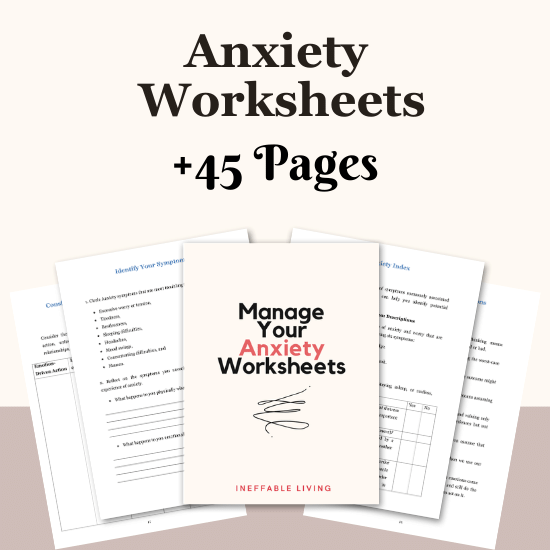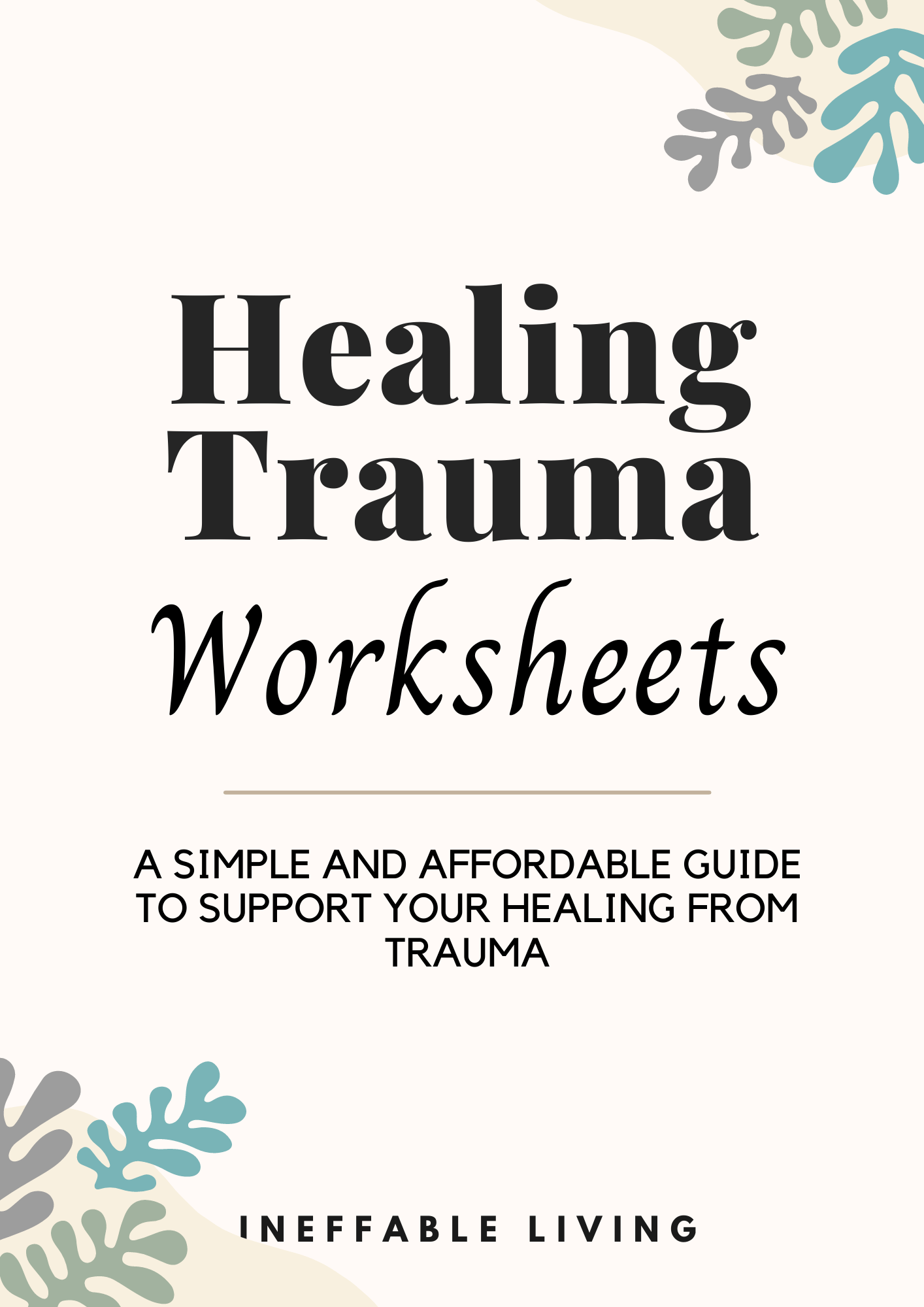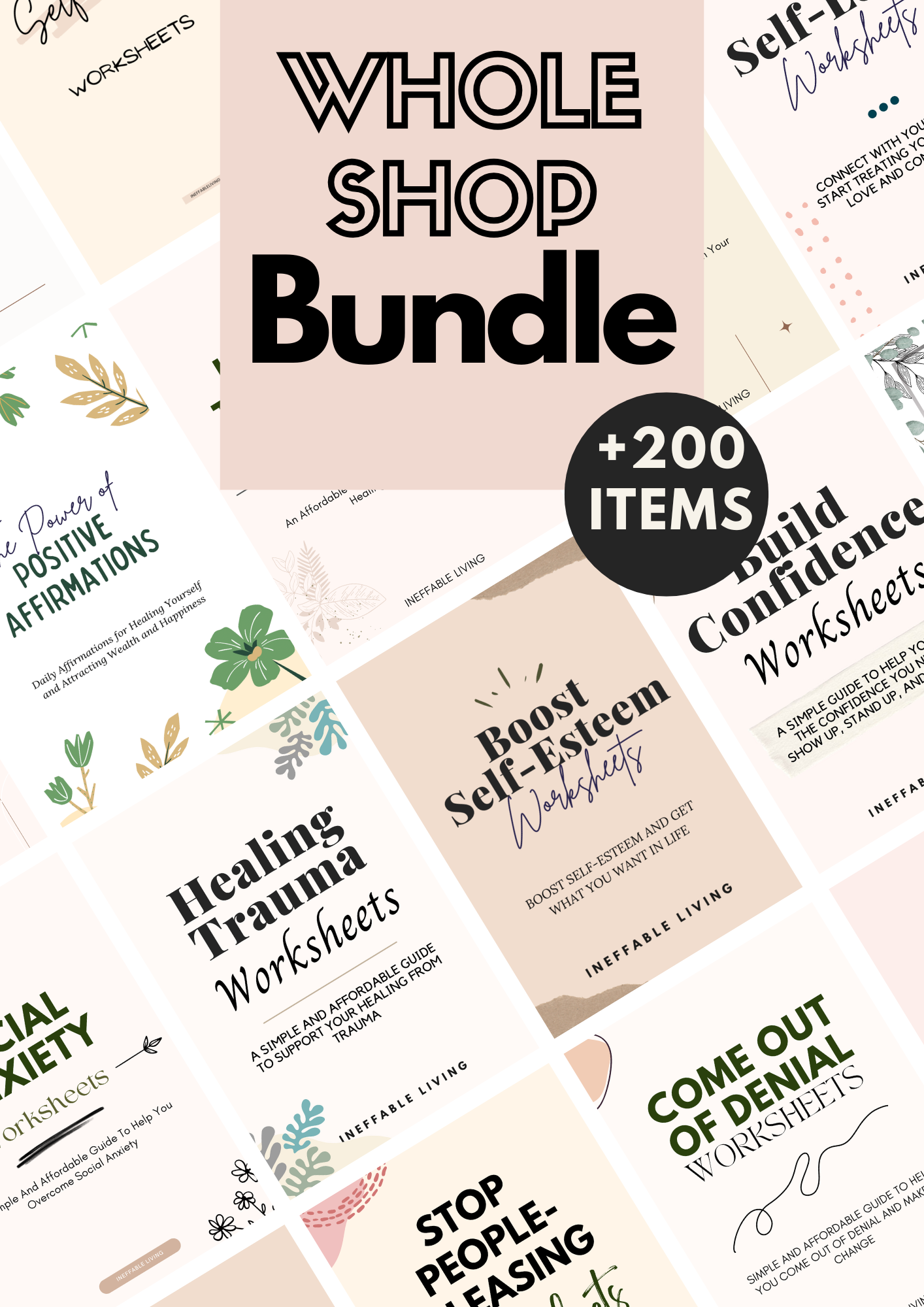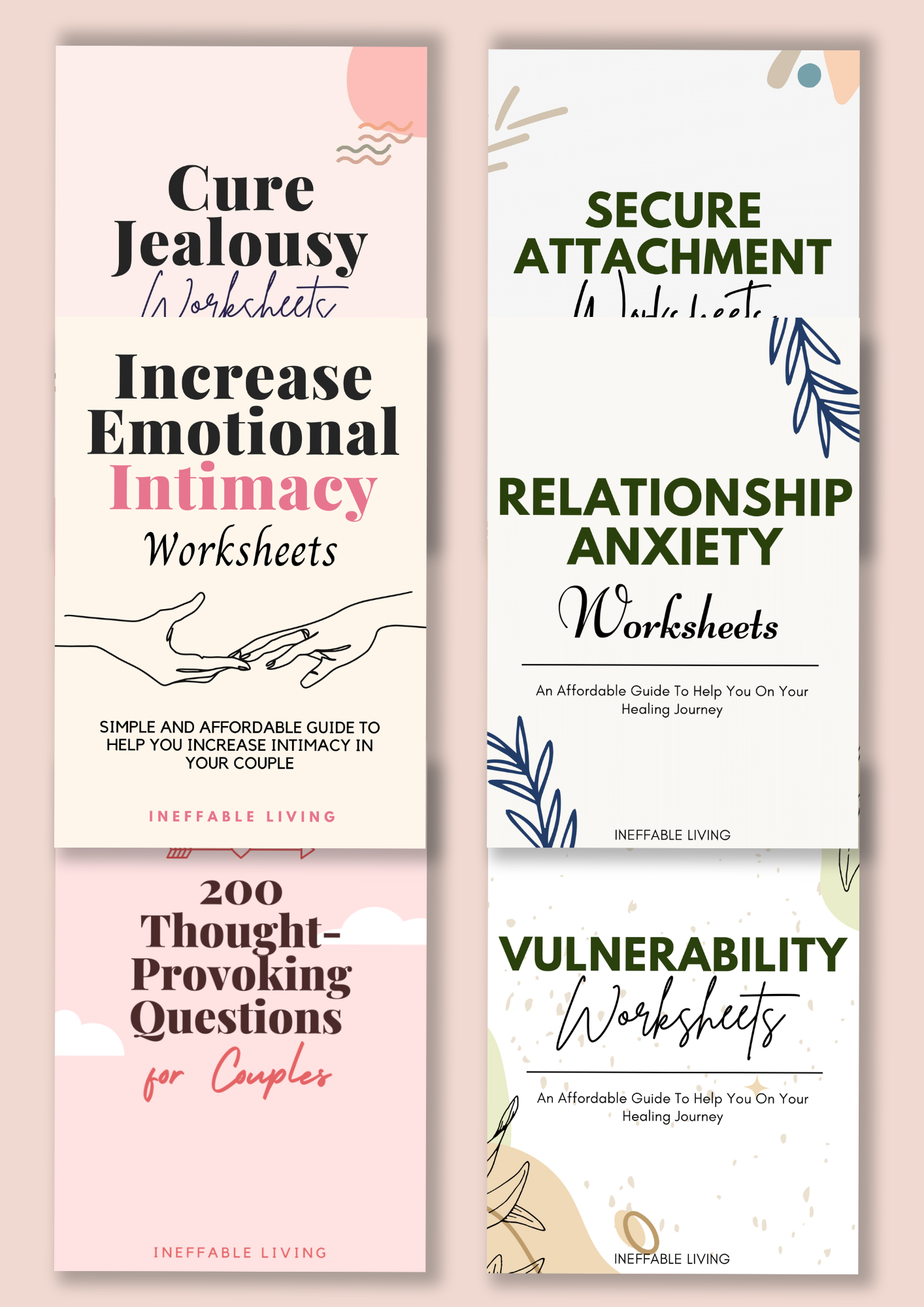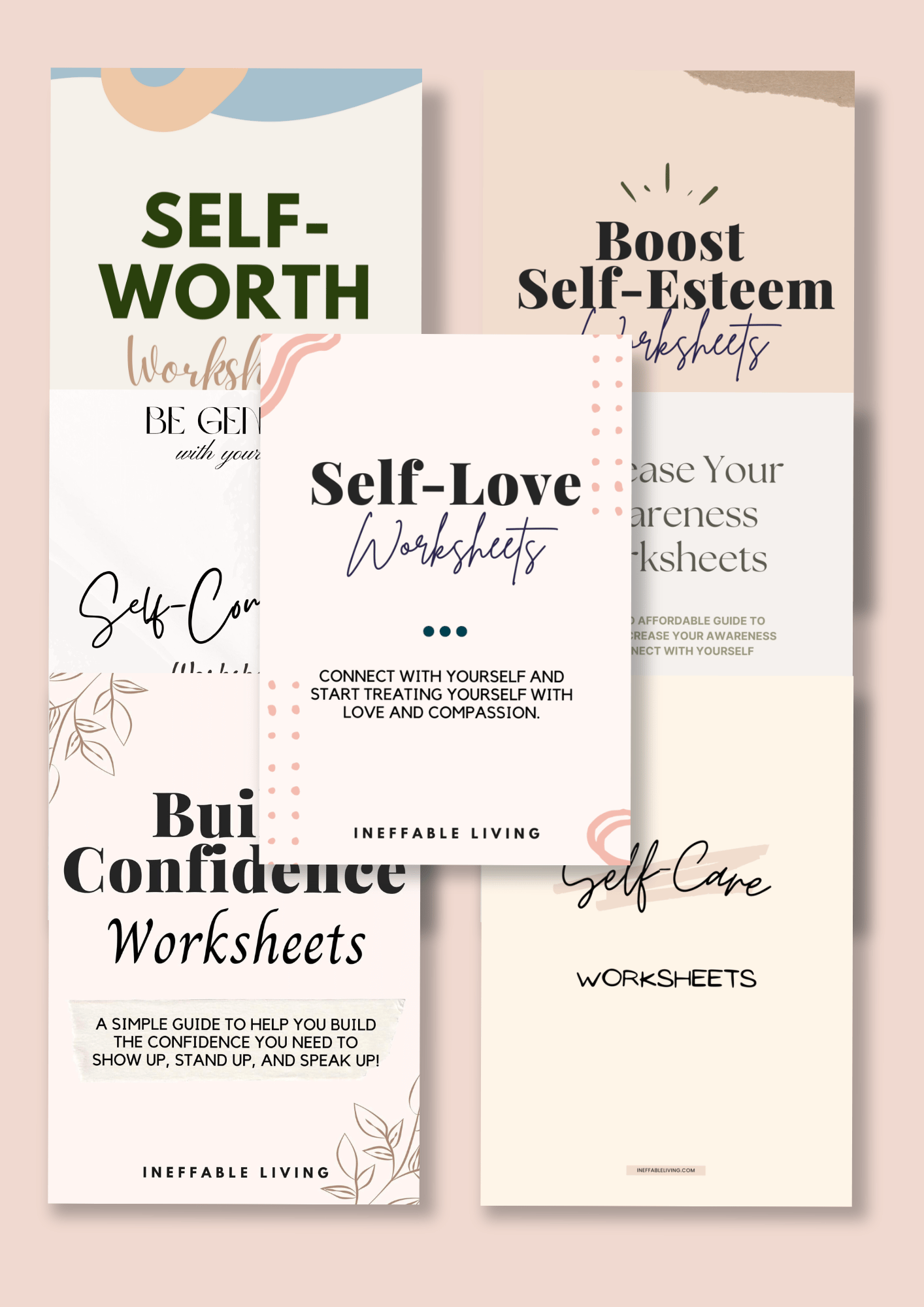1. Describe the specific situations or triggers that tend to provoke feelings of anxiety for you. What is it about these situations that leads to anxiety?
2. Reflect on the physical sensations you experience when feeling anxious (e.g., rapid heartbeat, shallow breathing, muscle tension, etc.). How do these physical symptoms manifest in your body?
3. Consider the thoughts and beliefs that typically accompany your anxiety. What recurring fears or worries tend to dominate your mind during anxious moments?
4. Explore any past experiences or traumas that may have contributed to the development of your anxiety. How do these past events continue to influence your present-day anxiety?
5. What are some common behavioral responses or coping mechanisms you employ when feeling anxious? Do these strategies alleviate or exacerbate your anxiety?
6. Reflect on any patterns or common themes among the sources of your anxiety. Are there specific triggers or stressors that frequently recur?
7. Consider the impact of anxiety on your daily functioning and well-being. How does it affect your ability to engage in work, social activities, or self-care?
8. Explore any recurring thought patterns or cognitive distortions that contribute to your experiences of anxiety. Are there ways in which your thinking tends to become skewed during anxious episodes?
9. Reflect on the potential sources of support and coping strategies available to you when managing anxiety. Who or what can help you navigate through anxious moments?
10. Consider the relationship between your anxiety and self-care practices. How might mindfulness, relaxation techniques, or other self-soothing activities contribute to managing your anxiety?
11. Reflect on any potential lifestyle factors that may impact your anxiety levels, such as sleep patterns, exercise, diet, and social connections.
12. Consider how your values and long-term goals align with your experiences of anxiety. How might you work towards living in ways that are congruent with these values, despite the presence of anxiety?
13. Reflect on any changes or boundaries you could implement to reduce triggers or sources of anxiety in your environment or daily life.
14. Explore any potential sources of uncertainty or fear about the future that contribute to your anxiety. What strategies might help you navigate and cope with these uncertainties?
15. Reflect on any lessons or insights you can gain from your experiences of anxiety, and how you might apply them to future situations.
Anxiety Worksheets
